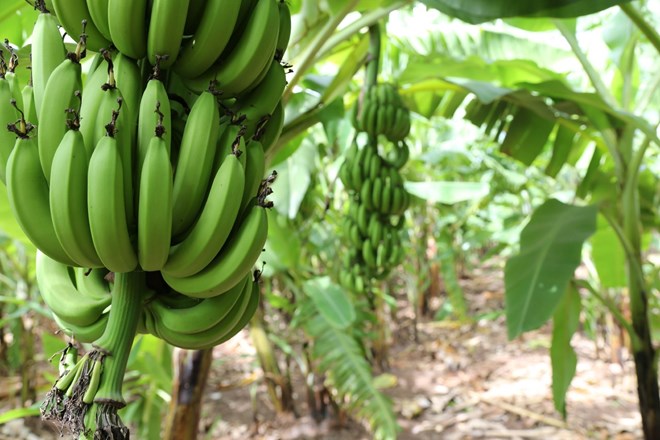Fresh Del Monte announces banana partnership in Somalia

Hargeisa (HOL) - Fresh Del Monte Produce, a leading global producer and distributor of fruit and vegetables, announced a partnership with UAE-based Moze Holding Limited, a new banana grower established in Somaliland, to grow and export bananas for the Middle East and North Africa markets.
As part of the agreement, Fresh Del Monte will purchase the bananas directly from Moze’s newly established banana farm but will retain operational oversight.
The first harvest is expected in 2024, with fruit sold and marketed under the Fresh Del Monte brand to the Arab world.
The Middle East is currently supplied by bananas from Central America or the Philippines, with average transit times ranging from 20 to 35 days.
“We are pleased to officially announce this partnership, which we believe is a game-changer for the banana industry in the region,” said Mohammad Abu-Ghazaleh, Fresh Del Monte’s Chairman and CEO. “The move to reestablish banana operations in Somalia makes sense on many accounts – from its strategic location on the Horn of Africa to fulfilling our mission of supplying our consumers with the freshest produce available – all while aiding the country’s recovery.”
Although no longer affiliated with the larger Del Monte Foods, Fresh Del Monte Produce Inc has a license to market its products worldwide under the Del Monte brand.
Moze Holding Limited, a banana grower wholly owned by Abu Dhabi-based investment firm Talc Investment, believes the partnership will provide consumers access to fresher, lower-cost fruit while investing in the region’s local economy.
“The Moze and Talc teams are delighted to work with a renowned name in agriculture, such as Fresh Del Monte, to revive the banana cultivation farms in Somaliland. This multi-purpose approach will serve the communities in the Horn of Africa, the Middle East, and the United Arab Emirates. We intend to build on this partnership in the near future as we look forward to a fruitful relationship,” said Mohammed Aldhaheri, Moze Holding and Talc Investment Chairman.
According to Fresh Del Monte, Moze acquired a large plot of land in the previously well-known banana farming territories in the breakaway region of Somaliland.
The statement does not specify where exactly the farm is located.
Somali bananas - famed for their sweet, creamy vanilla flavour - are one of the most important staple crops in the country and have long been an essential food source and income for the Somalis. It is consumed with rice, pasta or just as a fruit.
Commercial banana production in Somalia dates back to the 1920s when Italian colonists introduced it to the fertile Shabelle and Juba river basins. The colonial government encouraged the growth of the banana industry, and as a result, commercial banana production rapidly expanded and soon became one of the largest industries in Somalia.
Banana export peaked in the 1980s, led by the brand Somalita, partly owned by Unifrutti - an Italian company owned by the De Nadai family. Exports in 1990 neared $100 million, according to agricultural experts.




